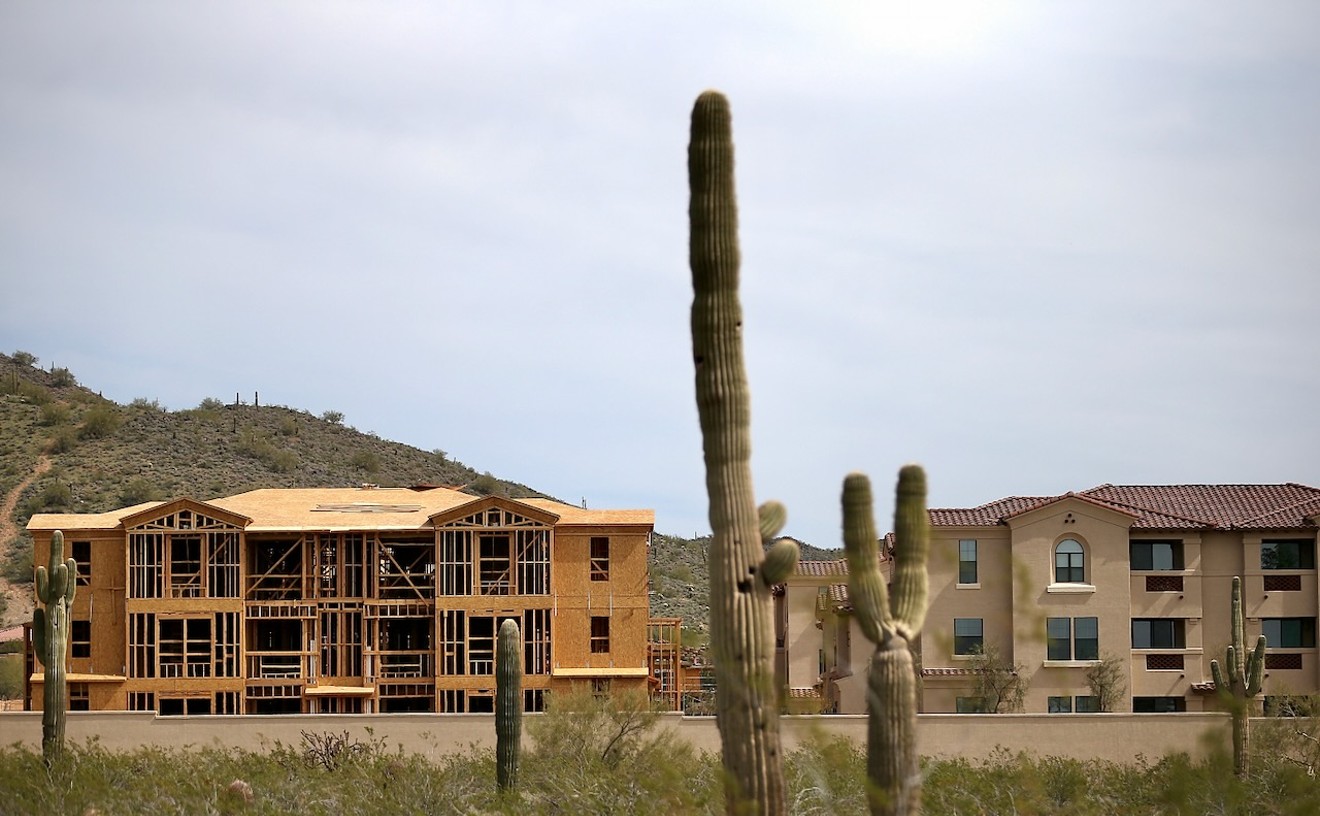Back in November 2012, an undocumented 15-year-old student at Sunnyside High School in Tucson was pulled out of class by the assistant principal, who believed he’d stolen a piece of school property.
Once in the assistant principal’s office, the student was questioned about his immigration status by a school resource officer. The officer handcuffed the boy and took him to a nearby Circle K. There, a Border Patrol agent picked him up and transported him to the local ICE office.
In the end, ICE agents determined that the student qualified for deferred action for childhood arrivals, and he was released. The ACLU of Arizona later filed a complaint against the school district.
But activists worry that incidents like this will become more common under the Trump administration. They're concerned that school resource officers — sworn law-enforcement officers who operate in public schools — will end up handing over undocumented students to immigration officials.
“A lot of people, Mayor Stanton included, haven’t really drawn the connection between policing as it now exists, and Trump’s deportation force,” says Heather Hamel, the founder and director of Justice That Works.
Previously, noncitizens were considered a top priority for deportation if they were convicted of a felony, were apprehended at the border, or were known gang members.
But under President Donald Trump’s new executive orders, anyone who has been charged with any kind of crime — like a kid who got in a fight at school, for example — is considered a priority for immediate removal.
“If people want to get serious about fighting deportations, then we need to be limiting police contact in all the places that it occurs, including schools,” Hamel says.
It’s already been well-documented that students of color, including Latino students, are statistically more likely to wind up with a criminal charge as the result of the same behavior that might land a white student in the principal’s office.
The ACLU of Arizona has found that Latino kids make up 30 percent of the general population and 57 percent of the kids tried as adults in court, which typically leads to more severe punishments.
“Eventually, it would be ideal to not have officers in schools,” says Maria Castro, a community organizer with People United For Justice. “More school resource officers in schools leads to more arrests, particularly with black and brown and indigenous youth.”
Since that’s unlikely to change anytime in the near future, activists are currently focusing on fighting S.B. 1099.
That bill would make schools located in “high crime” communities a higher priority for grants that would allow them hire more school resource officers and juvenile probation officers.
“We want to decrease the likelihood of contact with law enforcement, and that’s the best we can do right now,” Castro explains. “The Trump administration took away a lot of our tools.”
Some of the concern about SB 1099 is misplaced, says state Senator Martin Quezada, a Democrat who nevertheless voted against the bill.
He points out that individual school districts will be able to choose whether they apply for additional funds to hire more school resource officers.
“If there are any officers that are acting as a deportation force, then it’s really up to the school system to eliminate that individual,” he adds.
“School resource officers are not there to play that role — so if there’s a bad actor out there, they should be removed as soon as possible. But I think for the most part we’re doing a pretty good job of avoiding that.”
State Senator Kimberly Yee, a Republican who initially proposed the bill, says that she wasn’t aware of the incident that took place at Sunnyside High School, but that complaints about the use of SROs could potentially lead to schools losing their grant funding.
“If we found there was not a good situation happening in that school district, the grant judges would take that into consideration and probably even remove that school or that school district from the program for future years,” she says.
The intent of SB 1099 was simply to prevent cash-strapped districts from having to hire grant writers in order to apply for additional funding, State Senator David Bradley, a Democrat who co-sponsored the bill, says.
"Of course, now what's come up is the whole issue of undocumented people," he says. "Folks from the Department of Education assured us that wasn't the role of a school resource officer."
He emphasizes that school districts won't be forced to hire officers if they don't want to.
But Heather Hamel of Justice That Works says that leaving it up to the schools to turn down additional funding for more officers misses the point.
“Why would you be willing to risk that?” she asks. “If you don’t think it’s something school districts are going to do anyway, you should have no problem getting rid of it.”
[
{
"name": "Air - MediumRectangle - Inline Content - Mobile Display Size",
"component": "18478561",
"insertPoint": "2",
"requiredCountToDisplay": "2"
},{
"name": "Editor Picks",
"component": "16759093",
"insertPoint": "4",
"requiredCountToDisplay": "1"
},{
"name": "Inline Links",
"component": "17980324",
"insertPoint": "8th",
"startingPoint": 8,
"requiredCountToDisplay": "7",
"maxInsertions": 25
},{
"name": "Air - MediumRectangle - Combo - Inline Content",
"component": "16759092",
"insertPoint": "8th",
"startingPoint": 8,
"requiredCountToDisplay": "7",
"maxInsertions": 25
},{
"name": "Inline Links",
"component": "17980324",
"insertPoint": "8th",
"startingPoint": 12,
"requiredCountToDisplay": "11",
"maxInsertions": 24
},{
"name": "Air - Leaderboard Tower - Combo - Inline Content",
"component": "16759094",
"insertPoint": "8th",
"startingPoint": 12,
"requiredCountToDisplay": "11",
"maxInsertions": 24
}
]












